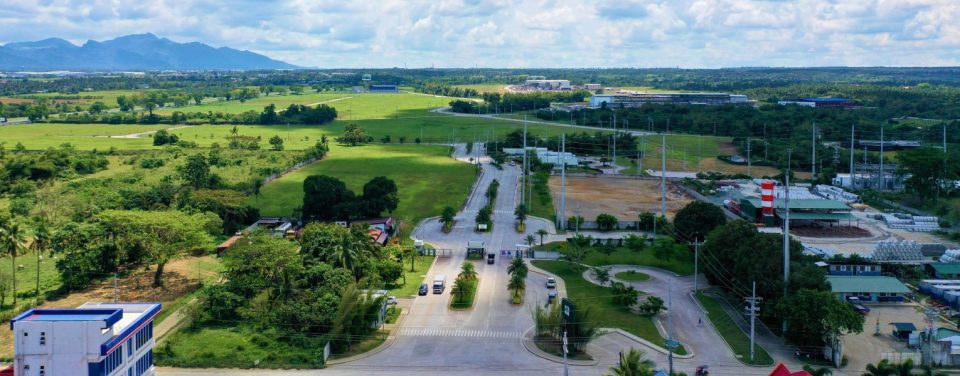An industrial park can serve as a catalyst for a region’s growth, driving industrialization and creating employment opportunities. However, understanding the zoning regulations surrounding these parks is crucial for any real estate investor or planner. This guide aims to demystify the complexities surrounding industrial park zoning.
The rationale for this guide is to arm investors and planners with relevant knowledge, helping them leverage these parks’ potential in line with local zoning laws. Ultimately, the guide aims to bridge the information gap, ensuring effective, profitable investments and sustainable urban planning around industrial parks.
Industrial Park Zoning
In the quest to maximize the potential of industrial parks, we first need to define and understand the concept of zoning. Zoning is a regulatory tool that governs land use in specific geographic zones. Within this spectrum, it refers to regulations specific to areas designated for industrial activities.
Delving into history, zoning laws trace back to the early 20th century, used primarily to separate incompatible land uses, promoting urban development while conserving natural resources. These laws have evolved over time, and today, zoning regulations cover a wide array of land uses, including the varied categories.
Lastly, different types – such as specific manufacturing parks, technology and research parks, and multipurpose industrial parks – each have unique zoning regulations. Familiarity with these varying regulations is key to successful real estate investment and planning.
Significance of Zoning for Real Estate Investors
Understanding zoning regulations plays a fundamental role in real estate investment, particularly in the domain of an industrial park. Being familiar with these rules can significantly influence property value, mainly because they dictate potential property uses. For instance, a parcel within an industrial park designated for manufacturing or warehousing may have a distinct value compared to a similar parcel permitted for technology-based industries.
Also, zoning laws can pose risks for unaware investors. If an investor unknowingly purchases a property within an industrial park, intending to use it for an activity not permitted by the zoning regulations, they could face penalties or be forced to undergo a potentially expensive and time-consuming rezoning process.
Therefore, an understanding of industrial park zoning regulations is essential for successful and risk-minimized real estate investment. It allows an investor to align their investment strategy with regional regulations, making the most of their investment.
A Beginner’s Guide to Zoning Laws
If you’re new to real estate investment, zoning laws might seem complex. Don’t worry; we’ll simplify it for you. Essentially, zoning laws are regulatory measures that determine land use in a particular area. These laws can specify anything from the type of activities permitted, to the height of buildings, or even the size of green spaces.
Understanding zoning maps is vital. They visually illustrate the zoning regulations applied to different areas, allowing you to easily identify what kind of activities are permissible in a given region.
Lastly, the rezoning process. Occasionally, you might come across a lucrative investment opportunity that doesn’t align with current zoning regulations. In such situations, rezoning could be an option. Be forewarned – the steps to alter existing zoning classifications involve a legal process and could require significant time and resources. Therefore, it’s critical to weigh the potential benefits against the resources required for rezoning.
Role of Planners in Industrial Park Zoning
Planning plays an integral role in industrial park zoning and ultimately contributes to effective real estate investment. Planners essentially shape the layout and the guidelines for land usage within industrial parks, ensuring harmony between commercial interests and the wider community’s needs.
The significance of urban planning, particularly in industrial park zoning, is multifaceted. It influences infrastructure development, environmental management, and even socio-economic dynamics within the region.
Moreover, the collaboration between planners and real estate investors is critical. While planners develop the framework for potential development, investors breathe life into these plans through their investments. This collaboration manifests the true potential of well-zoned industrial parks, creating symbiotic benefits for investors, users of the park, and the community at large.
Key Steps to Successful Investment in an Industrial Park
Identifying the right industrial park for investment is more than just about the price. Factors such as current zoning regulations, the park’s strategic location, existing infrastructure, and potential for future growth should all be considered.
Due diligence is a cardinal element of any successful investment. It involves an exhaustive assessment of the industrial park of interest. This includes but is not limited to, understanding the existing zoning laws, environmentally sensitive areas, existing and proposed infrastructure, and the potential for rezoning if needed.
Finally, risk mitigation strategies are paramount. These could range from ensuring all legal paperwork is correct and binding, inspection of physical infrastructure, to even considerations for environmental or market changes. This helps avoid potential issues and represents a proactive stance in securing your investment.
Key Takeaway
Investing in an industrial park can be a lucrative opportunity if navigated correctly. The key to successful investment lies in understanding the intertwined complexities of zoning regulations, planning strategies, and effective due diligence.
This guide aimed to streamline these complexities, presenting them in an easy-to-understand format, to empower real estate investors and planners alike for informed decision making.
The importance of continuous learning cannot be overstated, as both zoning laws and market conditions tend to evolve with time. Hence, staying updated and adapting to these changes form the cornerstone of successful investment in the realm of industrial parks.

